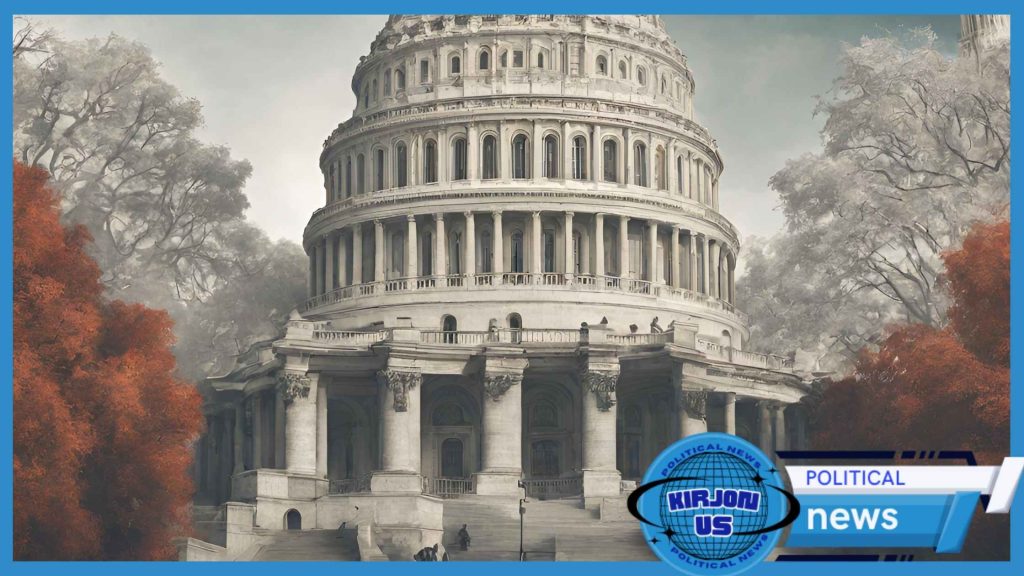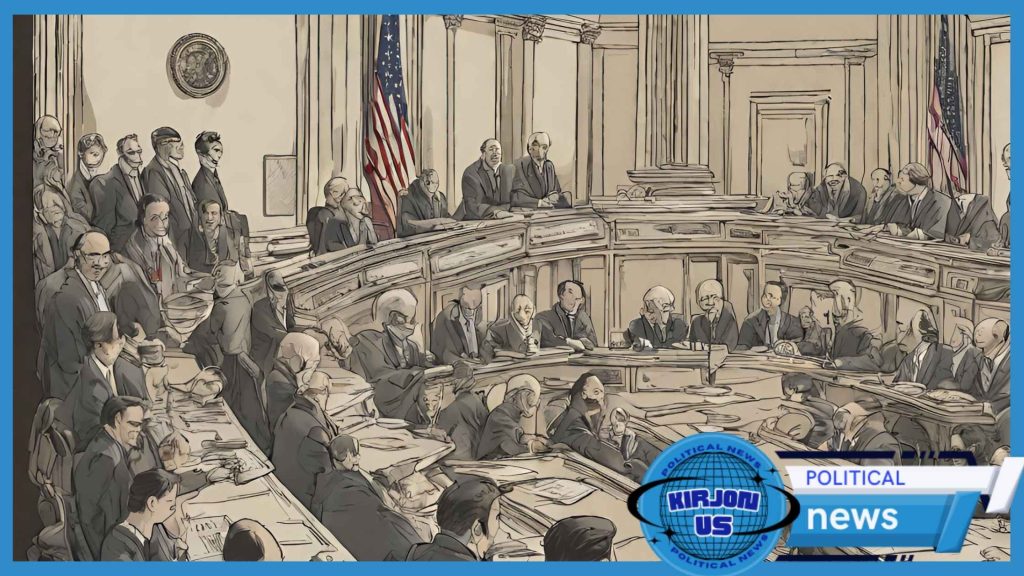Political activism is a dynamic force that drives social change and shapes the course of history. At its core, it involves the active engagement of individuals or groups in activities aimed at influencing or changing political, economic, or social policies and institutions. Whether through organized protests, grassroots movements, or lobbying efforts, political activism serves as a catalyst for progress and reform.
Political activism encompasses a broad spectrum of actions undertaken by citizens to express their views, advocate for their rights, and challenge the status quo. It can take various forms, ranging from peaceful demonstrations and rallies to civil disobedience and community organizing. At its heart, political activism is about exercising democratic rights and responsibilities to effect positive change in society.
The significance of political activism cannot be overstated. It serves as a vital mechanism for citizens to voice their concerns, hold elected officials accountable, and shape public policies. By mobilizing communities and raising awareness about pressing issues, political activism helps address injustices, promote equality, and safeguard democratic principles. Moreover, it empowers individuals to become active participants in the decision-making process, fostering a more inclusive and responsive political landscape.
In the following sections, we will delve deeper into the history, types, role, and benefits of political activism, exploring its transformative power and enduring relevance in contemporary society.
History of Political Activism

Throughout history, political activism has played a pivotal role in driving social progress and challenging entrenched power structures. From ancient civilizations to modern democracies, individuals and groups have engaged in acts of resistance and advocacy to advance their causes and shape the course of history.
Early Forms of Political Activism
The roots of political activism can be traced back to ancient times when citizens first began organizing collective actions to assert their rights and influence governance. In ancient Greece, for example, the concept of democracy emerged, giving rise to the Athenian assembly where citizens could debate and vote on public policies. Similarly, the Roman Republic saw the formation of grassroots movements and popular uprisings aimed at addressing grievances and demanding political reforms.
Milestones in Political Activism
Throughout the centuries, significant milestones have marked the evolution of political activism as a potent force for social change. The Renaissance period witnessed the emergence of intellectual and cultural movements that challenged prevailing norms and championed individual freedoms. The Enlightenment era further fueled the ideals of liberty, equality, and democracy, inspiring revolutions and social movements across the globe.
In more recent history, the struggle for civil rights in the United States stands as a landmark example of political activism in action. Led by figures such as Martin Luther King Jr. and Rosa Parks, the civil rights movement mobilized millions of people in nonviolent protests and acts of civil disobedience to combat racial segregation and discrimination.
As we delve deeper into the history of political activism, it becomes evident that the quest for justice, equality, and human rights has been a recurring theme throughout the ages. From the abolitionist movement to the fight for women’s suffrage, each chapter in history reflects the enduring spirit of resistance and resilience that defines political activism.
Types of Political Activism

Political activism manifests in various forms, each with its unique strategies, tactics, and objectives. From mass protests to grassroots organizing, activists employ a diverse range of methods to advocate for change and challenge existing power structures. Understanding the different types of political activism is essential for effectively engaging in social and political movements.
Protest Movements
Protest movements are perhaps the most visible and widely recognized form of political activism. They involve the organized gathering of individuals to publicly express dissent, demand action on specific issues, or raise awareness about social injustices. Protests can take many forms, including marches, rallies, sit-ins, and demonstrations. Whether peaceful or confrontational, protests serve as a powerful tool for mobilizing communities, amplifying voices, and pressuring authorities to address grievances.
Lobbying and Advocacy
Lobbying and advocacy involve efforts to influence policymakers and decision-makers to support particular policies, legislation, or initiatives. Lobbyists work on behalf of interest groups, organizations, or corporations to present their viewpoints, provide information, and seek favorable outcomes. Through strategic engagement with elected officials, lobbying and advocacy campaigns aim to shape public policy, promote specific agendas, and advance the interests of stakeholders.
Civil Disobedience
Civil disobedience is a form of nonviolent resistance characterized by the deliberate violation of laws, regulations, or orders in pursuit of a higher moral or political purpose. Inspired by the principles of justice and conscience, civil disobedience seeks to challenge unjust laws, spark public debate, and draw attention to social issues. From acts of peaceful disobedience, such as sit-ins and boycotts, to acts of civil resistance, such as strikes and blockades, civil disobedience has been instrumental in catalyzing social change and inspiring collective action.
Grassroots Organizing
Grassroots organizing involves the mobilization of local communities and individuals to address common concerns, build collective power, and effect change from the bottom up. Unlike top-down approaches, grassroots organizing empowers ordinary people to take action, develop leadership skills, and create sustainable solutions to systemic problems. Through community meetings, door-to-door canvassing, and collaborative initiatives, grassroots organizers foster solidarity, build coalitions, and advocate for inclusive and participatory decision-making processes.
As we explore the various types of political activism, it becomes evident that each approach offers unique opportunities and challenges for advancing social justice, promoting democratic values, and empowering marginalized communities. By combining diverse strategies and tactics, activists can amplify their impact, mobilize support, and create lasting change in society.
The Role of Political Activism in Society

Political activism plays a crucial role in shaping societies and advancing causes that are important to individuals and communities. By mobilizing citizens, raising awareness, and challenging existing power structures, political activism serves as a catalyst for social change and progress. Understanding the role of political activism in society is essential for fostering civic engagement, promoting democratic values, and building a more just and equitable world.
Promoting Social Change
One of the primary roles of political activism is to promote social change by addressing systemic injustices, advocating for marginalized communities, and challenging entrenched inequalities. Through protests, advocacy campaigns, and grassroots organizing, activists strive to dismantle oppressive systems, challenge discriminatory practices, and create a more inclusive and equitable society. By amplifying marginalized voices and advocating for policy reforms, political activism drives transformative change and fosters social justice.
Holding Authorities Accountable
Political activism plays a crucial role in holding authorities accountable for their actions and decisions. By scrutinizing government policies, exposing corruption, and demanding transparency and accountability, activists act as watchdogs and guardians of democracy. Through protests, petitions, and legal challenges, activists challenge abuses of power, ensure government responsiveness, and uphold the principles of good governance. By holding authorities accountable to the people they serve, political activism helps safeguard democratic institutions and promote the rule of law.
Amplifying Marginalized Voices
Political activism amplifies the voices of marginalized communities and empowers individuals to advocate for their rights and interests. By organizing grassroots movements, forming coalitions, and building solidarity across diverse groups, activists create spaces for marginalized voices to be heard and respected. Through storytelling, art, and cultural expressions, activists raise awareness about the experiences and struggles of marginalized communities, challenging stereotypes and promoting empathy and understanding. By centering the voices of those most affected by social injustices, political activism fosters a more inclusive and participatory democracy.
As we examine the role of political activism in society, it becomes clear that activism is not just a means of expressing dissent or advocating for change; it is a fundamental aspect of democratic citizenship and civic engagement. By mobilizing individuals, challenging power dynamics, and advocating for social justice, political activism empowers communities, strengthens democratic values, and shapes the future of society.
Benefits of Political Activism

Political activism yields numerous benefits for both individuals and society as a whole. From empowering citizens to strengthening democratic institutions, the practice of engaging in political activism has far-reaching positive effects that contribute to social progress and the advancement of democratic values. Understanding these benefits is essential for inspiring and mobilizing individuals to participate actively in political processes and advocate for meaningful change.
Empowerment of Citizens
One of the most significant benefits of political activism is the empowerment of citizens to become agents of change in their communities and societies. Through activism, individuals gain a sense of agency and efficacy, realizing that their actions can have a meaningful impact on social and political outcomes. By participating in protests, advocacy campaigns, and grassroots organizing efforts, citizens develop leadership skills, build solidarity with others, and cultivate a sense of civic responsibility. This empowerment fosters a culture of active citizenship and collective action, enabling individuals to contribute to the common good and shape the future of their communities.
Strengthening Democracy
Political activism plays a vital role in strengthening democratic institutions and processes by promoting civic engagement, fostering political participation, and holding elected officials accountable. By advocating for policy reforms, challenging unjust laws, and mobilizing voters, activists contribute to the vibrancy and resilience of democratic governance. Through peaceful protests, civil disobedience, and advocacy campaigns, citizens exercise their democratic rights and ensure that government decisions reflect the will of the people. This active engagement strengthens the democratic fabric of society, enhances public trust in institutions, and reinforces the principles of representative governance.
Fostering Civic Engagement
Engaging in political activism fosters a culture of civic engagement and public participation, encouraging individuals to take an active interest in political affairs and contribute to the democratic process. By organizing community events, participating in public forums, and joining advocacy groups, citizens develop a deeper understanding of social and political issues and become more informed and engaged members of society. This increased civic participation leads to greater political awareness, enhanced public discourse, and a more robust exchange of ideas and perspectives. By fostering a culture of civic engagement, political activism strengthens democratic norms and values and promotes a more inclusive and responsive political system.
As we explore the benefits of political activism, it becomes evident that activism is not only a means of advocating for specific causes or issues but also a fundamental aspect of democratic citizenship. By empowering citizens, strengthening democracy, and fostering civic engagement, political activism contributes to the collective well-being and advancement of society.
Challenges Faced by Political Activism
While political activism is a powerful tool for driving social change and advancing causes, it is not without its challenges. Activists often encounter various obstacles and barriers that can hinder their efforts and pose risks to their safety and effectiveness. Understanding and addressing these challenges is essential for sustaining momentum and overcoming obstacles in the pursuit of social justice and political reform.
Opposition and Resistance
One of the primary challenges faced by political activists is opposition and resistance from individuals, groups, or institutions that are vested in maintaining the status quo. Powerful interests may seek to undermine or discredit activist movements through disinformation campaigns, smear tactics, or legal challenges. Additionally, government authorities may deploy tactics such as surveillance, harassment, or repression to suppress dissent and discourage activism. Overcoming opposition and resistance requires resilience, strategic planning, and solidarity among activists to withstand challenges and continue advocating for change.
Legal and Safety Concerns
Engaging in political activism can expose individuals to legal risks and safety concerns, particularly in contexts where freedom of expression and assembly are restricted. Activists may face arrest, prosecution, or violence from state authorities or non-state actors for their involvement in protests, demonstrations, or acts of civil disobedience. Moreover, marginalized communities and minority groups may face disproportionate risks and vulnerabilities when advocating for their rights, facing discrimination, harassment, or violence. Ensuring the safety and well-being of activists requires careful planning, risk assessment, and support networks to mitigate potential risks and protect individuals from harm.
Media Representation
Another challenge faced by political activists is media representation and public perception, which can influence the success and impact of advocacy efforts. Mainstream media outlets may portray activist movements inaccurately or sensationalize events, perpetuating negative stereotypes or undermining the legitimacy of their grievances. Moreover, social media platforms may amplify misinformation or polarizing narratives, shaping public discourse and affecting public opinion. Building positive media relations, crafting compelling narratives, and leveraging digital platforms effectively are essential strategies for countering negative portrayals and shaping a more accurate and empathetic understanding of activist movements.
Navigating these challenges requires resilience, resourcefulness, and solidarity among activists, as well as support from allies and allies. By addressing obstacles and building collective strength, political activists can overcome barriers to progress and continue advocating for social justice, equality, and democratic values.
Examples of Successful Political Activism

Throughout history, there have been numerous examples of successful political activism that have brought about significant social change and advanced the cause of justice and equality. From grassroots movements to mass protests, these examples illustrate the transformative power of collective action and the enduring impact of political activism on society.
Civil Rights Movement
One of the most iconic examples of successful political activism is the Civil Rights Movement in the United States during the 1950s and 1960s. Led by figures such as Martin Luther King Jr., Rosa Parks, and Malcolm X, the Civil Rights Movement mobilized millions of Americans to challenge racial segregation and discrimination. Through nonviolent protests, marches, and boycotts, activists demanded an end to Jim Crow laws and fought for voting rights, equal access to public accommodations, and desegregation in schools and workplaces. The Civil Rights Act of 1964 and the Voting Rights Act of 1965 were landmark legislative achievements that resulted from the tireless efforts of civil rights activists, marking a significant victory in the struggle for racial equality.
Women’s Suffrage Movement
Another example of successful political activism is the Women’s Suffrage Movement, which campaigned for women’s right to vote and participate in political life. Beginning in the late 19th century, suffragists organized rallies, marches, and civil disobedience actions to demand suffrage rights for women. In countries such as the United States, the United Kingdom, and Canada, suffragist movements eventually succeeded in securing women’s right to vote through legislative reforms and constitutional amendments. The passage of the 19th Amendment to the U.S. Constitution in 1920 granted women the right to vote in the United States, marking a significant victory for the women’s suffrage movement and paving the way for greater gender equality in politics and society.
Environmental Activism
Environmental activism represents a contemporary example of successful political activism that has galvanized global attention and sparked policy changes. From grassroots organizations to international advocacy networks, environmental activists have mobilized to address urgent threats such as climate change, deforestation, and pollution. Through protests, direct actions, and advocacy campaigns, environmental activists have pressured governments and corporations to adopt more sustainable practices, protect natural resources, and mitigate the impacts of climate change. The Paris Agreement, a landmark international treaty aimed at limiting global warming, stands as a significant achievement of environmental activism, demonstrating the power of collective action to address pressing environmental challenges.
These examples highlight the transformative potential of political activism in effecting social change and advancing the rights and interests of marginalized communities. By organizing, mobilizing, and advocating for change, activists have demonstrated the power of collective action to challenge injustice, promote equality, and shape the course of history.
How to Get Involved in Political Activism
Getting involved in political activism is a meaningful way to make a difference in your community and advocate for causes that are important to you. Whether you’re passionate about social justice, environmental conservation, or human rights, there are various ways to engage in activism and contribute to positive change. Here are some steps to help you get started:
Educate Yourself
Before getting involved in political activism, take the time to educate yourself about the issues and causes you care about. Research the history, context, and current events related to the issues you want to address. Read books, articles, and credible sources of information to deepen your understanding and perspective. By becoming well-informed, you’ll be better equipped to advocate effectively and engage in meaningful dialogue with others.
Joining or Supporting Organizations
One of the most effective ways to get involved in political activism is to join or support organizations that align with your values and goals. Look for grassroots organizations, advocacy groups, or nonprofit organizations working on issues that resonate with you. Attend meetings, workshops, or events hosted by these organizations to learn more about their work and how you can contribute. Consider volunteering your time, skills, or resources to support their campaigns and initiatives.
Taking Direct Action
Political activism often involves taking direct action to raise awareness, advocate for change, and mobilize communities. This can include organizing protests, rallies, or marches to bring attention to specific issues and demand action from policymakers. Participating in civil disobedience actions, such as sit-ins or blockades, can also be a powerful way to challenge unjust laws and systems. Additionally, writing letters to elected officials, signing petitions, and engaging in online activism can help amplify your voice and influence decision-makers.
Building Coalitions and Alliances
Collaborating with like-minded individuals and organizations can amplify the impact of your activism and strengthen collective efforts for change. Seek out opportunities to build coalitions and alliances with diverse groups and communities that share common goals and values. By working together, you can leverage each other’s strengths, resources, and networks to achieve shared objectives and address complex social issues more effectively.
Engaging in Electoral Politics
Engaging in electoral politics is another avenue for political activism, allowing you to participate in the democratic process and advocate for policy changes through voting, campaigning, and supporting candidates who champion your values. Stay informed about upcoming elections, research candidates’ platforms and track records, and participate in voter registration drives and voter turnout efforts. By exercising your right to vote and encouraging others to do the same, you can influence political outcomes and shape the direction of public policy.
Getting involved in political activism requires commitment, courage, and persistence, but it can also be incredibly rewarding and impactful. By taking proactive steps to educate yourself, connect with others, and take action on issues that matter, you can contribute to positive change and make a meaningful difference in the world.
Conclusion
In conclusion, political activism is a vital force for social change and progress, empowering individuals and communities to advocate for their rights, challenge injustice, and shape the future of society. From historic movements for civil rights and women’s suffrage to contemporary campaigns for environmental sustainability and human rights, activism has played a pivotal role in advancing democratic values and promoting equality and justice.
Engaging in political activism offers numerous benefits, including the empowerment of citizens, the strengthening of democratic institutions, and the fostering of civic engagement. However, activists also face challenges such as opposition, legal risks, and media representation, requiring resilience, strategic planning, and collective action to overcome.
To get involved in political activism, individuals can educate themselves about the issues, join or support organizations, take direct action, build coalitions and alliances, and engage in electoral politics. By taking proactive steps to advocate for change and mobilize communities, individuals can contribute to positive social transformation and create a more just and equitable world.
In a society where political engagement is essential for democracy to flourish, political activism serves as a powerful tool for citizens to exercise their rights, hold authorities accountable, and work towards a more inclusive and responsive political system. By embracing the values of solidarity, empathy, and justice, activists can continue to make a meaningful impact and shape a brighter future for generations to come.
Frequently Asked Questions (FAQs)
1. How can I find local activist groups to join?
- You can search online for activist organizations in your area, attend community events or meetings, or connect with like-minded individuals through social media platforms or online forums.
2. Is political activism only about protesting?
- No, political activism encompasses a wide range of actions, including lobbying, advocacy, community organizing, and electoral participation. Protest is just one form of activism among many.
3. What are some ways to support activists if I’m unable to participate directly?
- You can support activists by donating to organizations, spreading awareness about their causes through social media or word of mouth, volunteering your skills or resources, or advocating for policy changes in your own spheres of influence.
4. How can I stay safe while engaging in political activism?
- It’s essential to prioritize your safety when engaging in activism. Be aware of your surroundings, follow legal guidelines and regulations, stay informed about potential risks, and consider joining groups or networks that provide support and resources for activists.
5. Can political activism really make a difference?
- Yes, political activism has a long history of driving social change and shaping public policy. From the civil rights movement to environmental activism, countless examples demonstrate the transformative power of collective action and the ability of activists to effect positive change in society.







